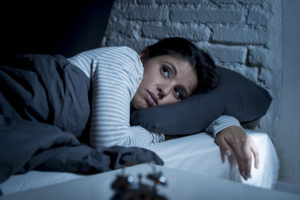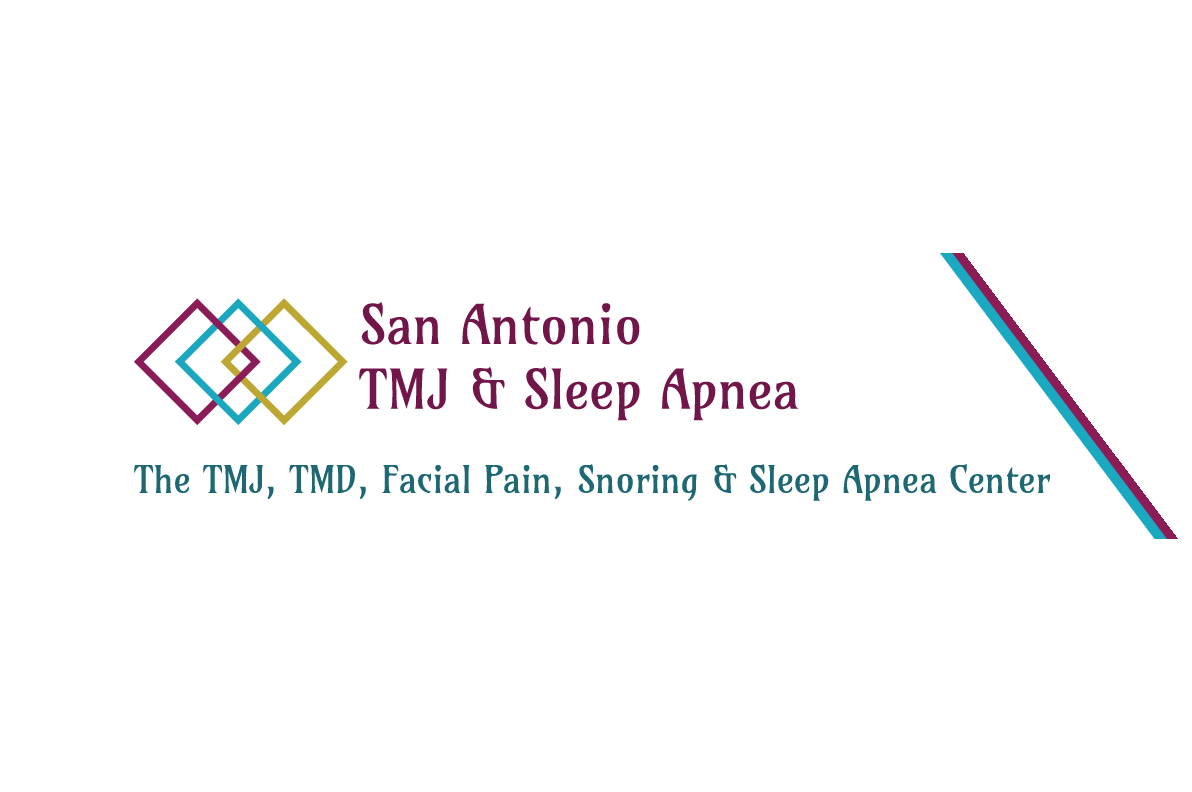To learn more about our services and what we can do for you, or to make an appointment, call us today!
Insomnia
 Insomnia is a common malady among humans and is described by difficulties either getting to sleep or staying asleep. Known causes include the following:
Insomnia is a common malady among humans and is described by difficulties either getting to sleep or staying asleep. Known causes include the following:
- Stress and/or anxiety
- External stimulants (TV, noise, pets or children in the same bed, snoring of sleep partner)
- The perceived need for vigilance of infants, elderly, or ill co-inhabitants
- Various sleep pathologies (Obstructive Sleep Apnea, Restless Leg Syndrome, etc.)
With respect to TMD, insomnia is important because of its potential for promoting nocturnal bruxism (teeth clenching and/or grinding). Nocturnal bruxism is an “arousal reaction,” meaning that it occurs when people lighten their sleep or awaken at night. The poorer one sleeps, the more likely they are to brux at night. It is important to understand that this relationship occurs, irrespective of why one has either poor sleep quality or awakens during sleep. It is the impact that poor sleep quality has on bruxism that is important. Bruxism loads your muscles and joints. Over time it can result in muscle and/or joint pain which is TMD. Hence, insomnia is linked to bruxism and TMD, and at the same time is a manifestation of OSA. In treating both TMD and OSA, improving insomnia is important to both disorders.
Sleep hygiene measures are an important foundation for all patients and may be all that is needed for some. These recommendations center around developing routines for sleep that are inducive to making sound sleep more predictable. Key components of good sleep hygiene are listed in the prior section concerning Snoring and Sleep Apnea.
Because sleep is a daily, subconcious phenomenon, it is difficult for many patients to be aware and accurate about their sleep quality and quantity. As with any chronic behavior, many people accept their sleep as normal, irrespective of abnormal features. Frequent urination is the most obvious example. Many people awaken and can urinate, so they assume they have awakened because of this need. However, for many people, they wake for other subconscious reasons and because they can urinate, a faulty causative association is made. For nearly all of such patients in my practice, if given a hypnotic agent, they sleep through the night without wetting the bed.
In many TMD and OSA/snoring patients with accompanying insomnia, hypnotic agents are needed to supplement sleep hygiene efforts. Over the counter medicines such as Melatonin or Benadryl, either alone or in combination with Tylenol or NSAIDs (i.e. Tylenol PM, Excedrin PM, or Advil PM), can be all that is needed. However, these supplements are mild and can be ineffective or produce the side-effect of morning fatigue. Prescribed medications can be stronger and are better tailored for a normal sleep cycle (less likely to cause drowsiness in the mornings). For many patients with insomnia, such medications are warranted and can include Ambien, Ambien CR, Lunesta, Klonopin, Elavil, Flexeril, Trazodone, etc. Side effects are uncommon, however, any medication can be disagreeable in terms of how they make you feel. The most common side-effect is morning fatigue, although it is infrequently encountered with these medications. Ambien is unique in that it is only intended to initiate sleep, while the others both initiate and perpetuate sleep. If one's insomnia only concerns getting to sleep, Ambien would be best targeted to meet this need.
It should be understood that all medicine formulations, herbal remedies, over the counter medicines, and retail drugs are chemicals. What distinguishes them is how they are formulated and brought to market. If you have a problem with manufactured drugs, understand that “natural” remedies are also chemicals and that nature has no special interest in your well-being. Some patients do not want to take “sleep medicines,” which is fine, as all treatments boil down to a personal risk vs. benefit analysis. From our perspective, the upside of improvements in symptoms, mood, alertness, and performance is formidable and deserve your consideration. Some of these medicines are potentially addictive, which, rightfully, concerns patients. However, it should be understood that taking a medicine only at bedtime reduces the chance of addiction. In addition, one must distinguish between the therapeutic effects of the medication (in this case hypnosis) and addiction. If one stops taking these medicines, there will be a short period of heightened insomnia (rebound insomnia), followed by a return to the quality of sleep prior to taking the medication. This does not imply addiction but is consistent with the absence of the drug's therapeutic effect. We have had, and do have, many patients on hypnotic medications and many have been taking them for many years. In our experience, addiction is rare to non-existent when these medications are taken at bedtime, and we have not seen patients have trouble discontinuing the medications.
In many OSA patients, hypnotic medications are needed to allow the oral appliance to be successful. If one can sleep through the night, not experience jaw pain, and keep the appliance in place, then a hypnotic medication is not needed. However, if patients have trouble sleeping with the appliance or are going to take the appliance out if they reach a certain level of awareness during sleep, then a hypnotic agent is the only means of prevention. Similarly, if patients experience morning jaw pain or TMD symptoms with sleep apnea appliances, prevention may require the use of a hypnotic agent, anti-inflammatory agents, or a combination. Such patients' jaws are either unable to tolerate being held in a forward position or patients' bruxism creates pain because of the restricted jaw movement with the sleep apnea appliances.
